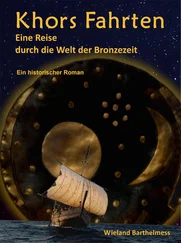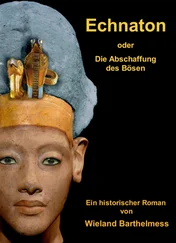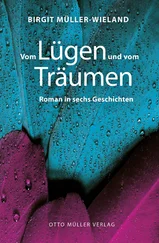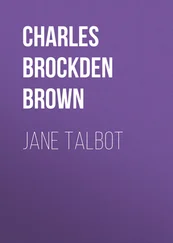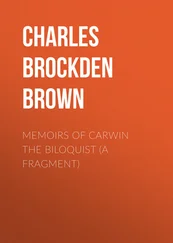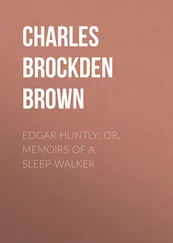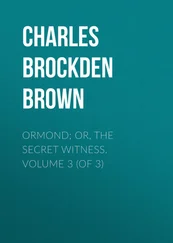By this act he mortally offended his relations. Thenceforward he was entirely disowned and rejected by them. They refused to contribute any thing to his support. All intercourse ceased, and he received from them merely that treatment to which an absolute stranger, or detested enemy, would be entitled.
He found an asylum in the house of his new father, whose temper was kind, and whose pride was flattered by this alliance. The nobility of his birth was put in the balance against his poverty. Weise conceived himself, on the whole, to have acted with the highest discretion, in thus disposing of his child. My grand-father found it incumbent on him to search out some mode of independent subsistence. His youth had been eagerly devoted to literature and music. These had hitherto been cultivated merely as sources of amusement. They were now converted into the means of gain. At this period there were few works of taste in the Saxon dialect. My ancestor may be considered as the founder of the German Theatre. The modern poet of the same name is sprung from the same family, and, perhaps, surpasses but little, in the fruitfulness of his invention, or the soundness of his taste, the elder Wieland. His life was spent in the composition of sonatas and dramatic pieces. They were not unpopular, but merely afforded him a scanty subsistence. He died in the bloom of his life, and was quickly followed to the grave by his wife. Their only child was taken under the protection of the merchant. At an early age he was apprenticed to a London trader, and passed seven years of mercantile servitude.
My father was not fortunate in the character of him under whose care he was now placed. He was treated with rigor, and full employment was provided for every hour of his time. His duties were laborious and mechanical. He had been educated with a view to this profession, and, therefore, was not tormented with unsatisfied desires. He did not hold his present occupations in abhorrence, because they withheld him from paths more flowery and more smooth, but he found in unintermitted labour, and in the sternness of his master, sufficient occasions for discontent. No opportunities of recreation were allowed him. He spent all his time pent up in a gloomy apartment, or traversing narrow and crowded streets. His food was coarse, and his lodging humble. His heart gradually contracted a habit of morose and gloomy reflection. He could not accurately define what was wanting to his happiness. He was not tortured by comparisons drawn between his own situation and that of others. His state was such as suited his age and his views as to fortune. He did not imagine himself treated with extraordinary or unjustifiable rigor. In this respect he supposed the condition of others, bound like himself to mercantile service, to resemble his own; yet every engagement was irksome, and every hour tedious in its lapse.
In this state of mind he chanced to light upon a book written by one of the teachers of the Albigenses, or French Protestants. He entertained no relish for books, and was wholly unconscious of any power they possessed to delight or instruct. This volume had lain for years in a corner of his garret, half buried in dust and rubbish. He had marked it as it lay; had thrown it, as his occasions required, from one spot to another; but had felt no inclination to examine its contents, or even to inquire what was the subject of which it treated.
One Sunday afternoon, being induced to retire for a few minutes to his garret, his eye was attracted by a page of this book, which, by some accident, had been opened and placed full in his view. He was seated on the edge of his bed, and was employed in repairing a rent in some part of his clothes. His eyes were not confined to his work, but occasionally wandering, lighted at length upon the page. The words "Seek and ye shall find," were those that first offered themselves to his notice. His curiosity was roused by these so far as to prompt him to proceed. As soon as he finished his work, he took up the book and turned to the first page. The further he read, the more inducement he found to continue, and he regretted the decline of the light which obliged him for the present to close it.
The book contained an exposition of the doctrine of the sect of Camissards, and an historical account of its origin. His mind was in a state peculiarly fitted for the reception of devotional sentiments. The craving which had haunted him was now supplied with an object. His mind was at no loss for a theme of meditation. On days of business, he rose at the dawn, and retired to his chamber not till late at night. He now supplied himself with candles, and employed his nocturnal and Sunday hours in studying this book. It, of course, abounded with allusions to the Bible. All its conclusions were deduced from the sacred text. This was the fountain, beyond which it was unnecessary to trace the stream of religious truth; but it was his duty to trace it thus far.
A Bible was easily procured, and he ardently entered on the study of it. His understanding had received a particular direction. All his reveries were fashioned in the same mould. His progress towards the formation of his creed was rapid. Every fact and sentiment in this book were viewed through a medium which the writings of the Camissard apostle had suggested. His constructions of the text were hasty, and formed on a narrow scale. Every thing was viewed in a disconnected position. One action and one precept were not employed to illustrate and restrict the meaning of another. Hence arose a thousand scruples to which he had hitherto been a stranger. He was alternately agitated by fear and by ecstacy. He imagined himself beset by the snares of a spiritual foe, and that his security lay in ceaseless watchfulness and prayer.
His morals, which had never been loose, were now modelled by a stricter standard. The empire of religious duty extended itself to his looks, gestures, and phrases. All levities of speech, and negligences of behaviour, were proscribed. His air was mournful and contemplative. He laboured to keep alive a sentiment of fear, and a belief of the awe-creating presence of the Deity. Ideas foreign to this were sedulously excluded. To suffer their intrusion was a crime against the Divine Majesty inexpiable but by days and weeks of the keenest agonies.
No material variation had occurred in the lapse of two years. Every day confirmed him in his present modes of thinking and acting. It was to be expected that the tide of his emotions would sometimes recede, that intervals of despondency and doubt would occur; but these gradually were more rare, and of shorter duration; and he, at last, arrived at a state considerably uniform in this respect.
His apprenticeship was now almost expired. On his arrival of age he became entitled, by the will of my grand-father, to a small sum. This sum would hardly suffice to set him afloat as a trader in his present situation, and he had nothing to expect from the generosity of his master. Residence in England had, besides, become almost impossible, on account of his religious tenets. In addition to these motives for seeking a new habitation, there was another of the most imperious and irresistable necessity. He had imbibed an opinion that it was his duty to disseminate the truths of the gospel among the unbelieving nations. He was terrified at first by the perils and hardships to which the life of a missionary is exposed. This cowardice made him diligent in the invention of objections and excuses; but he found it impossible wholly to shake off the belief that such was the injunction of his duty. The belief, after every new conflict with his passions, acquired new strength; and, at length, he formed a resolution of complying with what he deemed the will of heaven.
The North-American Indians naturally presented themselves as the first objects for this species of benevolence. As soon as his servitude expired, he converted his little fortune into money, and embarked for Philadelphia. Here his fears were revived, and a nearer survey of savage manners once more shook his resolution. For a while he relinquished his purpose, and purchasing a farm on Schuylkill, within a few miles of the city, set himself down to the cultivation of it. The cheapness of land, and the service of African slaves, which were then in general use, gave him who was poor in Europe all the advantages of wealth. He passed fourteen years in a thrifty and laborious manner. In this time new objects, new employments, and new associates appeared to have nearly obliterated the devout impressions of his youth. He now became acquainted with a woman of a meek and quiet disposition, and of slender acquirements like himself. He proffered his hand and was accepted.
Читать дальше

